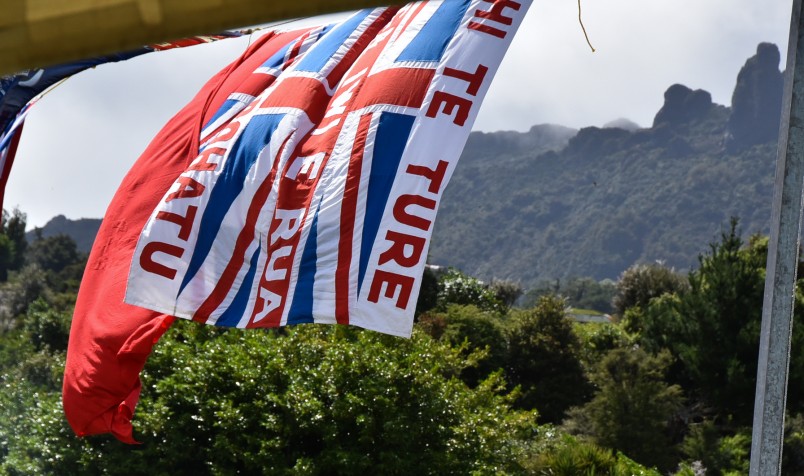Royal Assent for the Rua Kenana Pardon Bill, Maungapohatu

Maungapōhatu, tū tonu mai ra. E te Whanau whanui a Rua Kēnana. Nei ano aku mihi aroha.
Stand tall Maungapōhatu. My continued aroha to the wider Whanau of Rua Kēnana.
Ka mihi maioha ki a koe Nanaia. Me nga mananui kua pae mai i tenei ra.
My sincere greetings and acknowledgment to you Nanaia and to all of those with authority
Gathered here this day.
First, let me acknowledge the deep sorrow we all feel following the tragic loss of life on Whakaari last week.
It was a particularly sad time for Ngati Awa, and they have shown great aroha and manaakitanga to the families of victims and survivors of the eruption.
We’ll be thinking of them in the weeks and months ahead.
Today I’m sure that there are mixed emotions as we gather to acknowledge the Crown’s apology and pardon to Rua Kēnana.
Historical wrongs are not easily forgotten – or forgiven.
My apology, on behalf of the Crown, is heartfelt, and I appreciate the generosity of spirit in your welcome to me today.
I like to think that one of my predecessors, Lord Ranfurly, is playing his part, given that he presented the Union Jack flag we see today to Rua Kēnana’s tipuna, Tutakangahau in 1904.
It become the Maungapōhatu flag, embossed with Rua’s words: KOTAHI TE TURE MO NGA IWI E RUA MAUNGAPŌHATU.
Those words alluded to the meeting between Rua and the then Prime Minister Joseph Ward in Whakatāne, in March 1908.
On that occasion, when they discussed Rua’s wish to have a separate Māori government, the Prime Minister said there couldn’t be two suns shining in the sky at one time.
Rua replied that there was one sun in the heavens, but it shines on one side – the Pākeha side – and it darkens on the other.
Rua’s flag expressed his wish to see everyone have the same rights under the law – to have their own place in the sun.
That hope was shattered with the invasion of this peaceful and orderly settlement by a large contingent of armed police in April 1916.
Some of you here today will have heard first-hand accounts of what happened next – about the shock and horror of seeing Rua’s son Toko and Te Maipi being shot and killed; Rua and another son Whatu being arrested; and in the days that followed, the ill-treatment endured by members of the community.
Thus began dark days for Maungapōhatu. For Rua, there was to be a 47-day trial, followed by prison and months of hard labour.
Iharaira bore not only the crippling cost of his defence, but also reparations to the government to cover the costs of the police raid.
Without the energetic leadership of Rua, the strength and wellbeing of the Maungapōhatu community gradually diminished.
Unsympathetic media accounts of the events ensured that the shadow of dishonour and sedition became part of the story.
That stigma has been felt by succeeding generations.
During my time as a Chief Crown Negotiator for Treaty Settlements, I heard many accounts of the Crown’s breaches of the principles of Te Tiriti o Waitangi. This is a particularly grievous example of such breaches.
So it is with profound satisfaction that, over 100 years later, I can play a part in both the legislative recognition of those transgressions, and in the granting of an official pardon to Rua.
Today Rua’s mana, reputation and character have been restored, along with the mana of his uri and Ngā Toenga o ngā Tamariki a Iharaira.
A light now shines on the unjust acts of the past, and with this legislation, the kaupapa of Rua’s flag has been acknowledged, affirmed and vindicated.
My best wishes to everyone who has gathered here today in this place that is so imbued with Rua’s wairua.
I hope this is a new chapter in the Maungapōhatu story, where you feel freed from the shackles of history, and can move into the sunlight Rua sought for you.
Across Aotearoa New Zealand, as the history of Aotearoa New Zealand becomes a standard fixture in our children’s education, future generations will now learn Rua’s story.
In generations to come they will also learn your story.
Your fight for justice and unwavering commitment are a beacon for others, inspired by your example to never give up, to stay true to your convictions, your principles and values – as taught by Rua.
The granting of the Royal Assent here today enables us to erect a tatau pounamu, an enduring peace-pact between the Crown and Ngā Toenga o Ngā Tamariki a Iharaira me Ngā Uri o Maungapōhatu.
The tatau pounamu will also serve as a sobering reminder of the moral duty to honour our Treaty partnership and ensure that justice prevails in the present and in the future we will share together.
As part of the tatau pounamu today, it is now my privilege to consign a signed copy of the bill into the care of Nga Toenga Trustees.
As another sign of the tatau pounamu we are entering into together, it is my honour to present the trustees with a mere pounamu, which is named Te Haraiunuhia (pronounced Te HARA I UNUHIA).
Let this mere be wielded in the same manner with which Rua led his followers – with grace and dignity, with compassion and care – and always in peace.
E te to Nga Iharaira
Kawea te kaupapa
Mauria te Pono.
To the survivors
Keep the good cause going
And, believe in yourselves.
